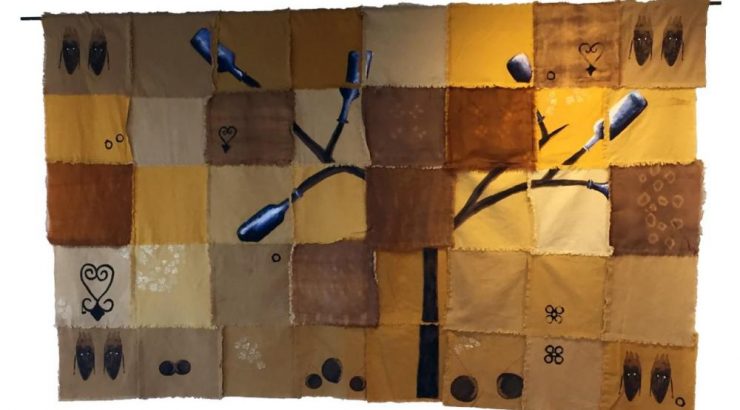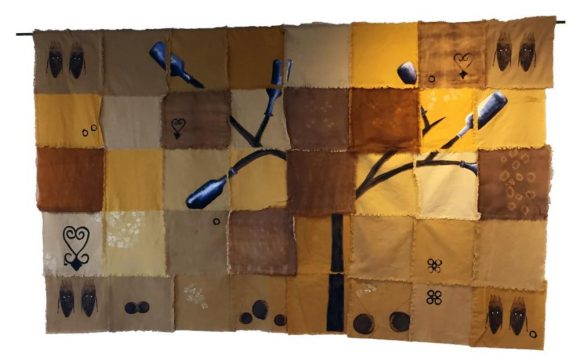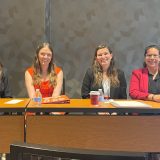
“Prayers for Flint” Storyteller and Artist Karen Hampton
November 1, 2021
Wilkinson College of Arts, Humanities, and Social Sciences hosted textile artist and educator Karen Hampton as part of the Engaging the World: Leading the Conversation on Environmental Justice to examine the Flint water crisis and its impact on the majority black city.
“Prayers for Flint” is her story of the people of Flint, Michigan, who in the 2019 Flint water crisis discovered that the city’s water supply was contaminated with lead. Flint, the birthplace of General Motors, suffered economic decline beginning in 1980’s with the decline of the U.S. auto industry, and misguided cost-savings measures in 2014 switched the city’s water supply to the Flint River which was not treated with corrosion inhibitors, allowing lead to leach into the drinking water from aging pipes. Lead poisoning is especially dangerous for young children, affecting their mental and physical development.
“One of the big issues for me with taking on a project like this was the fact that I was an outsider and I really truly feel that when there is something that is so important that it really is important for the people who are experiencing it to encourage their voices,” said Hampton.
“Karen Hampton’s work gave an in-depth look into how our cultures and experiences can intertwine to create works of art that can help bring awareness to what’s going on around us, like environmental injustice. It was inspiring to learn about the process that goes into her works and hear about the history and experiences that influences them. I definitely look forward to seeing her work displayed in the Escalette’s upcoming curated exhibit, and learning more about her other works,” said Yandel Salas, (’25, Graphic Design Major).
In her lecture, Hampton explained how her research informed the artwork, “Prayers for Flint.” Because the crisis disproportionately affected African American residents, her research focused heavily on Black history.
The squares of fabric were dyed with samples of the polluted water she collected during her travels. The pairings of masks on the textile’s four corners are modeled after an African initiation mask she saw on display at the Flint Institute of Arts. She considers the mask to be “a reminder of African heritage… and [a vessel] of dreams for a better Flint.” The bottle tree in the center references the bottle trees found in the American South, mainly on African American homesteads, which are believed to trap evil spirits and protect the land. Lastly, the heart-shaped symbols represent Sankofa, a Yoruba symbol and word that means “to remember your past so you do not have to repeat it.” These symbols and representations trace the lineage of history that led to the current water crisis in Flint and offer hope, protection, and prayers for a better future.
“Karen Hampton’s work shows how humans, one’s culture, and environmental awareness can all be intertwined to create meaningful work. It was inspiring to hear how thought through her works are–through the shapes on the textiles to her process of making them using natural dyes. I look forward to seeing her work displayed in the Escalette’s upcoming exhibition,” said Natalie Teeter, (‘25, Business Administration Major, Honors Minor).
“Karen’s work shows us how shared human experience can be embodied in cloth. Her talk gave us an expanded understanding about her textiles in the Escalette Collection and we look forward to sharing Prayers for Flint in an upcoming exhibition curated by FFC (First Year Foundation) students” on the theme of environmental justice, said Dr. Fiona Shen, the Escalette Collection Director.


